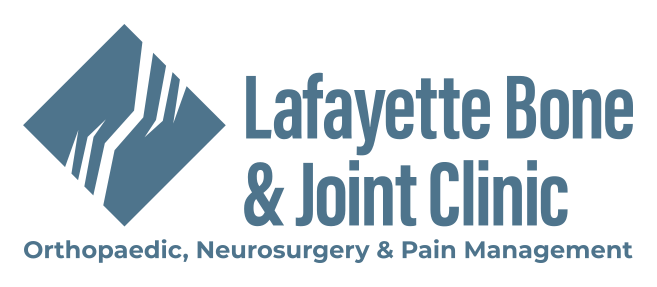Nerve Conduction Studies
Charting the Course to Wellness
Lafayette Bone and Joint Clinic
Orthopedic Surgeons & Pain Management Specialists located in Lafayette, LA
Nerve conduction studies (NCS) are a specialized diagnostic tool used to assess the function and integrity of the peripheral nervous system. By measuring the speed and strength of electrical impulses as they travel along nerves, NCS provides invaluable insights into a wide range of neurological conditions, including nerve compression syndromes, peripheral neuropathies, neuromuscular disorders, and more.
In order to create a personalized treatment plan, we need to find the root cause of your pain. Dr. Daniel Hodges conducts nerve conduction studies to uncover the underlying causes of your symptoms. Take the proactive step towards understanding and addressing your nerve health concerns with Dr. Daniel Hodges and the dedicated team at Lafayette Bone & Joint Clinic.
Whether you’re experiencing numbness, tingling, weakness, or other symptoms of nerve dysfunction, nerve conduction studies offer a non-invasive and reliable means of evaluating nerve health and guiding treatment decisions. At Lafayette Bone & Joint Clinic, we’re armed with comprehensive diagnostics to formulate personalized treatment strategies tailored to address your unique needs and restore your nerve health.
Nerve Conduction Studies Q&A
What are nerve conduction studies (NCS), and why are they performed?
Nerve conduction studies, or NCS, are specialized tests used to evaluate the functions of the peripheral nervous system. These studies involve applying small electrical stimuli to specific nerves and recording the resulting electrical responses. NCS are performed to diagnose and evaluate a variety of conditions affecting the nerves, including peripheral neuropathies, nerve compression syndromes (like carpal tunnel syndrome), and neuromuscular disorders.
How are nerve conduction studies performed, and what can I expect during the test?
During a nerve conduction study, electrodes are placed on the skin overlying the nerves being tested. Small electrical pulses are then delivered through the electrodes to stimulate the nerves, and the resulting electrical responses are recorded. This process may cause mild discomfort or a tingling sensation, but it is generally well-tolerated. The test typically takes about 30-60 minutes to complete, depending on the number of nerves being evaluated.
Are there any risks or side effects associated with nerve conduction studies?**
Nerve conduction studies are considered safe and non-invasive, with minimal risks. Some patients may experience temporary discomfort or a tingling sensation during the test, but serious complications are rare. There is a small risk of skin irritation or allergic reaction to the electrode pads used during the study, but this is uncommon.
What conditions can nerve conduction studies help diagnose?
Nerve conduction studies can aid in the diagnosis of a variety of neurological conditions, including peripheral neuropathies (nerve damage), nerve compression syndromes (carpal tunnel syndrome and cubital tunnel syndrome), radiculopathies (nerve root compression), and neuromuscular disorders like myasthenia gravis and muscular dystrophy.
How should I prepare for a nerve conduction study, and are there any post-procedure instructions I should follow?
In most cases, no special preparation is required for a nerve conduction study. It is advisable to wear loose-fitting clothing that allows access to the areas being tested. Inform your healthcare provider if you have a pacemaker or other implanted medical devices, as these may interfere with the test. After the procedure, you can resume normal activities immediately and there are no specific post-procedure instructions to follow.
What we offer
Services
Arthroscopy
more info
EMG
more info
Nerve Conduction Studies
more info
Orthopedic Trauma
more info
Reconstructive Surgery
more info
Robotic-Assisted Surgery
more info
Shoulder Surgery
more info
Spine Surgery
more info
Sports Medicine
more info
